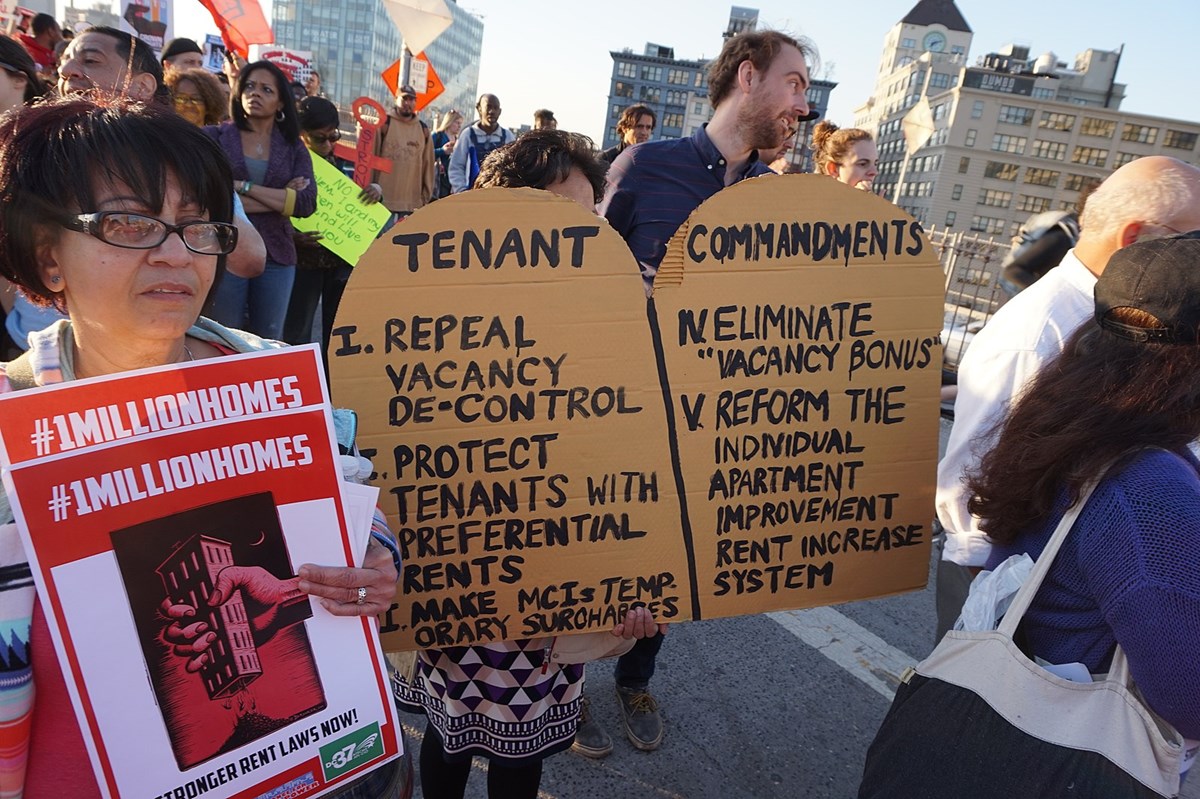There has recently been a major push for rent control. Not only has Oregon passed the first statewide rent control measure, but there is also a growing movement calling for “universal rent control”—that is, rent control on a national level. The thinking behind it suggests that without proper rent control laws, low-income earners would lack access to affordable housing. But the opposite is true.
Rent Control Disincentivizes Competition
A basic law of economics is that when the price of something is held down, demand rises. Thus, when rental prices are held lower than they otherwise would be at market rates, renters want to rent more units and landlords want to rent out fewer units. The result is an affordable housing shortage. Furthermore, while artificially low rental rates may be nice for those who already occupy rental units, even in these cases there are damaging indirect consequences.
Far from helping eliminate slums, rent control laws, in fact, create them.
For example, limiting the rent landlords can collect encourages them to reduce their maintenance expenses, which means repairs and updates happen less frequently, if at all. Broken or old appliances are slowly, if ever, replaced, and property damage, including graffiti, is often left unaddressed.
In other words, landlords pay no price for poor service when there is a long list of potential tenants due to rent control laws. In a free market, however, landlords must please their tenants in order to keep them from finding other living accommodations. That is why, far from helping eliminate slums, rent control laws, in fact, create them.
Rent Control Discourages Investment
Nor do problems stop there. Over the long-term, rent control policies discourage construction of additional apartment complexes. Why? Consider a group of investors who have the option of either purchasing a piece of real estate or building apartments. If they are unable to charge market rates because the government has capped them to make housing “affordable,” the incentive for these investors is to forgo building the complex and instead invest in the real estate.
Rent control both reduces affordable housing construction and acts as a disincentive to maintain the existing stock of apartment complexes.
Alternatively, if these investors do choose to build a complex, the incentive is to construct something like high-end condominiums, where rent control policies do not apply. This government-created “spillover” effect from rent control policies thus exacerbates the gap between rich and poor.
Now, one objection here is that sometimes new rental units are exempt from rent control policies, precisely so as not to discourage new affordable housing construction. But as economist Walter Block has pointed out, it is not merely where rent control laws are currently in effect, but also where they are a threat that matters for investors. If there is a possibility that rent controls could apply down the line, investors enter that into their decision-making when deciding where to invest.
As Block puts it,
The mere anticipation of controls is enough to have a chilling effect on such investment. Instead, everything else under the sun in the real estate market has been built: condominiums, office towers, hotels, warehouses, commercial space. Why? Because such investments have never been subject to controls, and no one fears they ever will be.
In short, rent control both reduces affordable housing construction and acts as a disincentive to maintain the existing stock of apartment complexes, thereby limiting quantity and deteriorating quality over time. Conversely, in a free market, builders are incentivized to meet market demand while competing on quality and price to attract tenants, meaning more living options, improved living quarters, and more affordable rates.
Rent Control Backfires
It is therefore unsurprising that economists widely agree on the negative consequences of rent control. For instance, “right-wing” economists Milton Friedman and Friedrich Hayek condemned rent control policies, as did their fellow “left-leaning” Nobel laureate Gunnar Myrdal, who stated that “Rent control has in certain Western Countries constituted, maybe, the worst example of poor planning by governments lacking courage and vision.” Myrdal’s socialist colleague, economist Assar Lindbeck, added that “In many cases rent control appears to be the most efficient technique presently known to destroy a city—except for bombing.”
These sentiments accord with economic literature. Indeed, economist Blair Jenkins summed up the thrust of the studies on the matter: “The literature on the whole may be fairly said to show that rent control is bad, yet as of 2001, about 140 jurisdictions persist in some form of the intervention.”
It is no wonder support for rent control flourishes where knowledge of economics is scarce.
So, if the economics are clear, why do these policies persist, and why is there a growing movement supporting them? The answer to the first question is that good economics does not always (or even often) make good politics.
With regard to rent control, it is easy for politicians to demagogue “unjust” rental rates for which they can demand “solutions,” thereby portraying themselves as saviors against the forces of evil; the answer to the second is that there is a growing ignorance of economics among the American populace, especially among the young. In fact, recent polls reveal that millennials are more favorable to socialism than to capitalism. It is no wonder support for rent control flourishes where knowledge of economics is scarce.
The good news, however, is that the economic case against rent control is compelling. The bad news is that many Americans, particularly among the young, do not know it and therefore support movements like universal rent control. But they can be persuaded. We just need to make the case.

